METROPOLIS2 Course
Routing
Lucas Javaudin
2025
Overview
- METROPOLIS2 relies on time-dependent Contraction Hierarchies algorithms
- Pre-processing phase: nodes are "contracted" from least "important" to most "important"; contracting a node entail removing it and the adjacent edges, while creating shortcut edges to maintain fastest paths
-
Two types of queries:
- Earliest-arrival query: Retrieve the earliest arrival time (= the minimum travel time) and the corresponding path, for a given origin-destination pair and departure time from origin
- Profile query: Retrieve the travel-time function, for a given origin-destination pair (minimum travel time for all possible departure times)
Query Types
Earliest-arrival query
- Input: Origin (Cergy); Destination (Saint-Denis); Departure-time (8 a.m.)
-
Output:
Arrival time: 9:10 a.m.
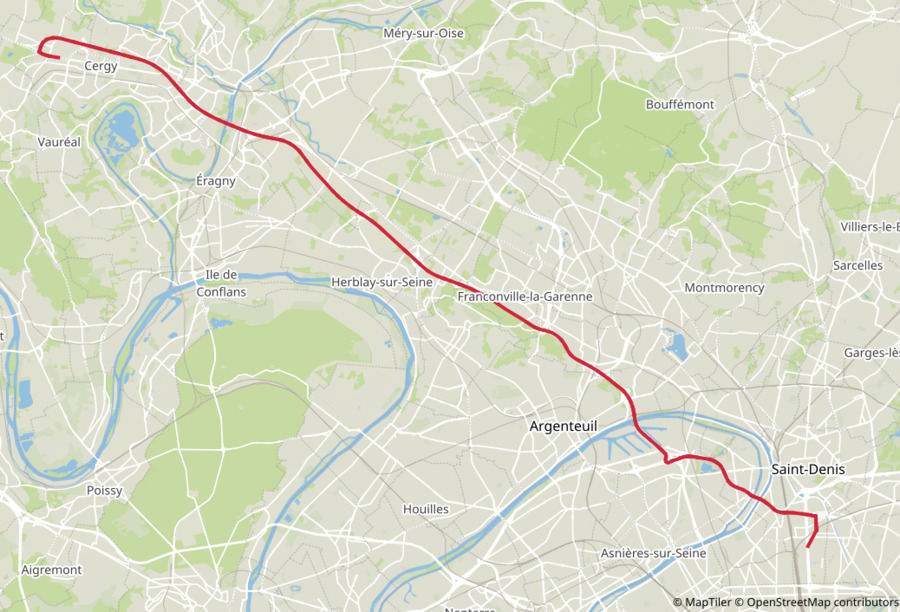
Profile query
- Input: Origin (Cergy); Destination (Saint-Denis)
-
Output:
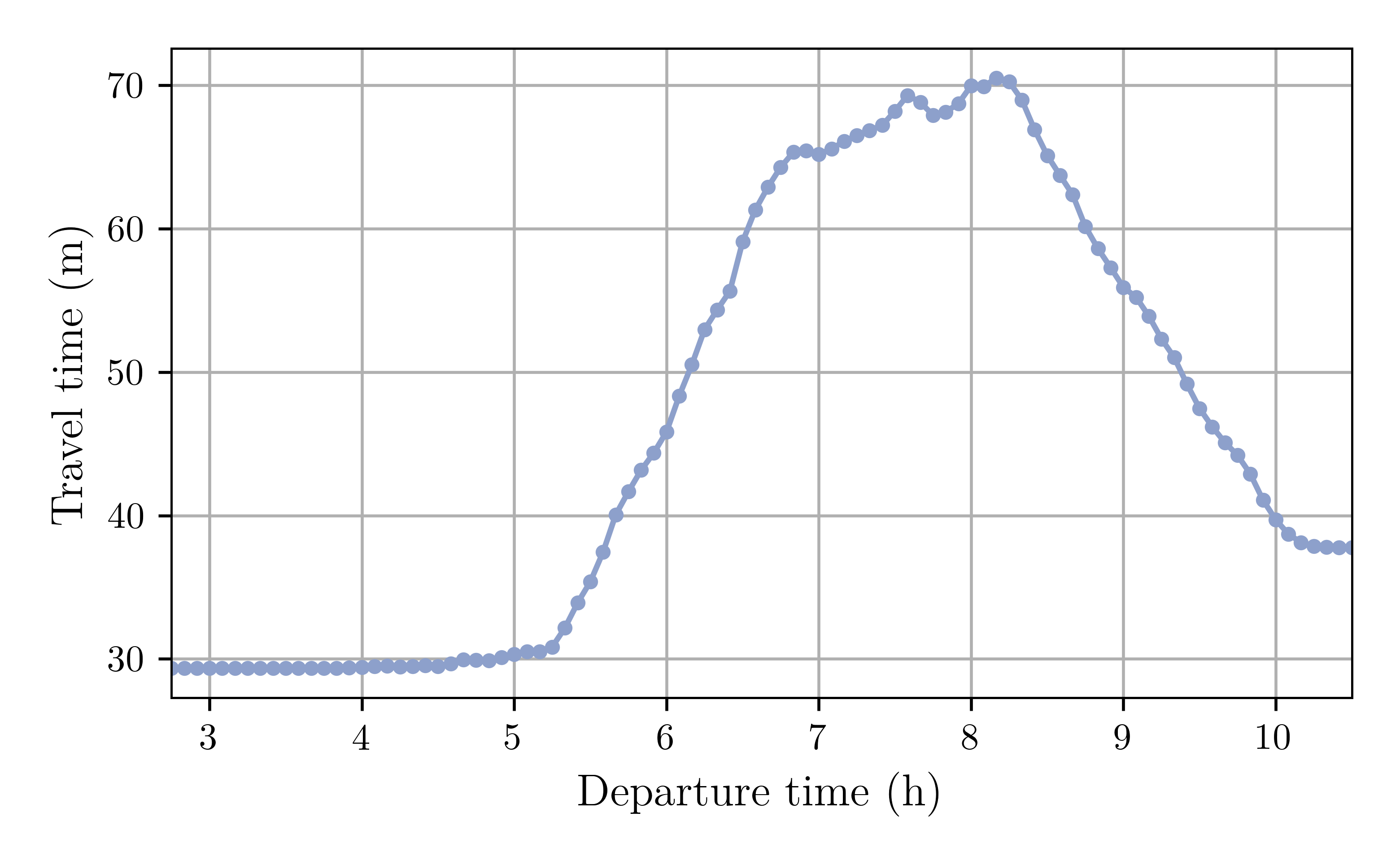
Using Routing Algorithms
- The routing algorithms of METROPOLIS2 can be used independently from the simulator: "Run routing" button on the GUI version or "routing_cli" executable on the CLI version
-
Four input files:
- Parameters (JSON)
- Queries (CSV or Parquet)
- Edges (CSV or Parquet)
- [Optional] Edges' travel-time functions (CSV or Parquet)
-
Three output files:
- Earliest-arrival query results (CSV or Parquet)
- Profile query results (CSV or Parquet)
- Running times (JSON)
Edges Input File
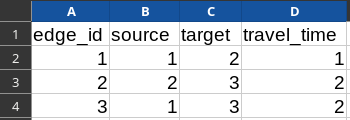
- Similar format than the Edges input file of METROPOLIS2
- Column
travel_time: constant travel time on the edge
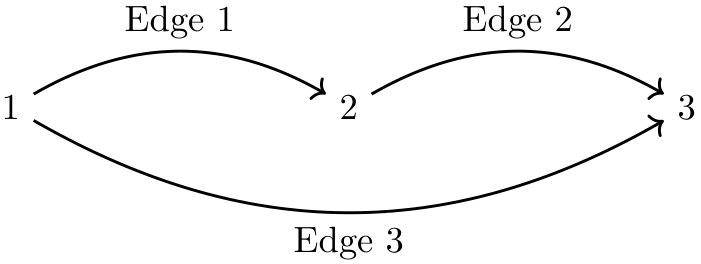
Edges' TTF Input File
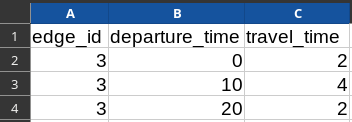
- Specify for some edges the travel-time function to be used instead of the constant travel time
- The travel-time function is given as a list of breakpoints (departure time, travel time)
- Format very similar to METROPOLIS2's output file for road-network conditions
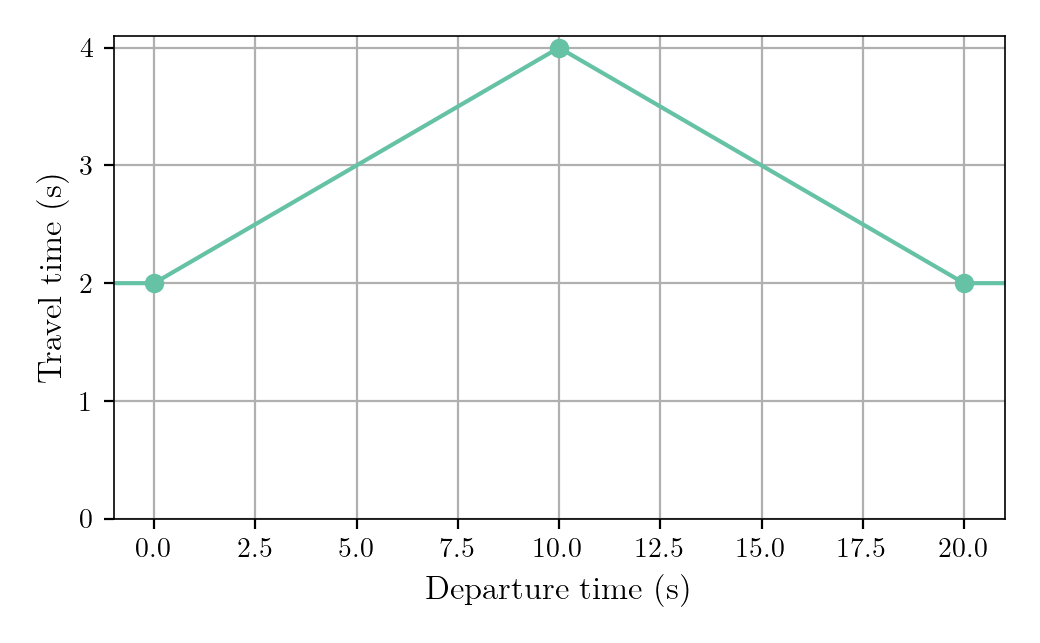
Queries Input File
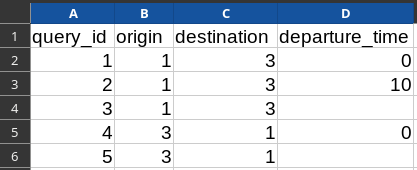
query_id: Identifier of the query (used in the results)origin: Identifier of the origin nodedestination: Identifier of the destination nodedeparture_time: Departure time from origin- If departure time is omitted: profile query; otherwise: earliest-arrival query

Routing Parameters JSON File
{
"input_files": {
"queries": "queries.csv",
"edges": "edges.csv",
"edge_ttfs": "edge_ttfs.csv"
},
"output_directory": "output",
"saving_format": "CSV"
"algorithm": "TCH",
"output_route": true,
"nb_threads": 8,
}
input_files: Path to the three input files (absolute or relative to the "parameters.json" file)output_directory: Path to the output directory (absolute or relative to the "parameters.json" file)saving_format: "CSV" or "Parquet"algorithm: "Best", "TCH", "Intersect", or "Dijkstra"output_route: Whether to compute and return the fastest paths (only for earliest-arrival queries, incompatible with "Intersect")nb_threads: Number of threads to use when running (Default is to use the maximum available)
Earliest-Arrival Queries Results
-
File
ea_results.csv(or .parquet):
-
Input graph:

-
Input files:



Profile Queries Results
-
File
profile_results.csv(or .parquet):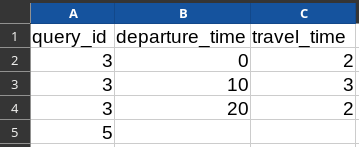
-
Input graph:

-
Input files:



Beyond Earliest Arrivals
- When all the edges' travel-time functions are constant, the time-dependent routing algorithm is equivalent to a static routing algorithm
- The
travel_timevalues can be set to something else (e.g., edge's length) and the algorithm will minimize with respect to this metric - To compute the length of the shortest path, set the values to the edges' length and run earliest-arrival queries with a departure time of 0